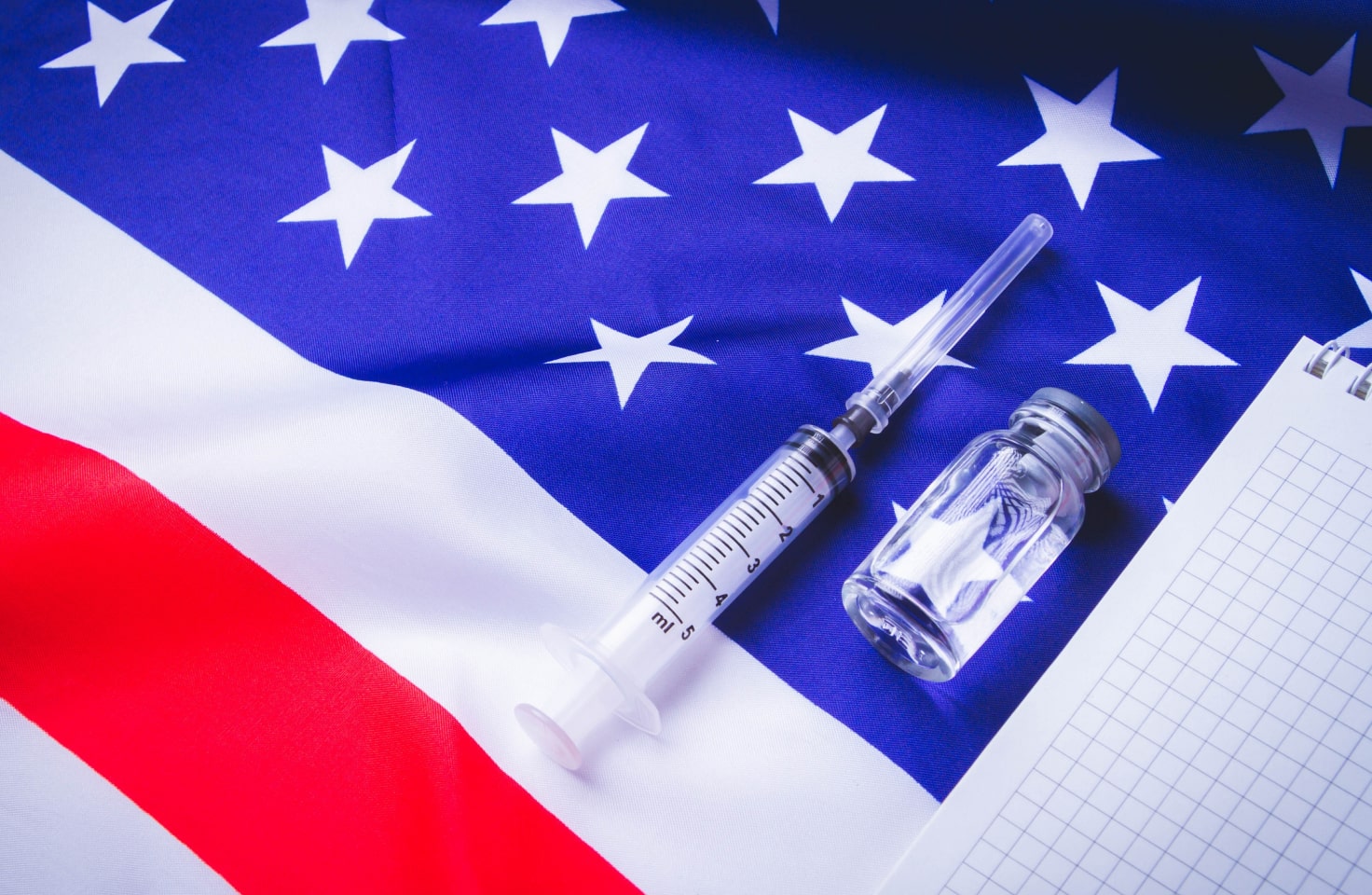T1D Guide
T1D Strong News
Personal Stories
Resources
T1D Misdiagnosis
T1D Early Detection
Research/Clinical Trials
Type 1 Diabetes and Eating Disorders – The Dangerous Dual Diagnosis
When you have type 1 diabetes, your insulin treatment is to moderate blood glucose levels every hour of every day, even while you sleep. It may sound basic, but it’s one of the most grueling, challenging tasks in the world, with so many components—dosing the right amount of insulin for food, correcting blood sugars, managing stress, treating low blood glucose episodes, all the while getting enough physical activity and sleep- it's enough to make your head explode.

Editor's Note: The information provided here is for informational purposes only. If you are suffering from an eating disorder diagnosis, seek help from a trained healthcare team.
Add in our health-crazed, diet-obsessed culture, and you get another grave layer of complexity. With T1D, you typically have to dose insulin for every bite unless you carry around a bag of beef jerky all day.
nsulin doses for quick snacks like a few potato chips or Twizzlers can be a huge pain. Not dosing can leave blood sugars high, which puts individuals at a higher risk for kidney disease, nerve damage, cardiovascular disease and diabetic ketoacidosis (DKA), a life-threatening complication that can cause diabetic coma or death.
Keeping glycemic control in check is demanding of itself, but when you throw in the constant barrage of negative body image messages on social media, movies, and television, lambasting us with the societal pressures of staying thin and looking a certain way—you have a lethal combination.
We can say that perfection is overrated. But our brains and the constant filtered images on Instagram tell us otherwise. We have this ridiculous notion that our self-worth is tied to our looks, which is not only wrong but can lead to many health problems.
Your Relationship with Food
Everyone has a relationship with food. Let’s face it: we either love, hate, or are indifferent toward it. But no one can honestly say, I can take it or leave it—for the simple reason we need it to survive. And as a necessary part of life, it comes with a lot of drama.
We can blame the skinny obsession of today’s standards on the media. Our unhealthy Western culture equates body weight and dieting to status and worth. Plus, the Kardashians and Hollywood housewives do not set the best examples.
The first step is to identify your relationship with food. Creating healthy eating patterns and moderating food intake isn't as easy as it appears. Eating disorders are mental illnesses, and combined with the insulin-dependent diabetes Mellitus disorder type 1, the two can be a toxic pairing.
Eating Disorder Risk Factors
Eating disorders today are on the rise. According to an NBC Nightly News report from April 2023, the number of teenagers treated for the illness is higher than ever. Also, the National Association of Anorexia Nervosa and Associated Disorders cites eating disorders as the deadliest mental illness, second to opioid addiction, with approximately 24 million people afflicted in the United States. Eating disorders affect every race, sex, and ethnicity. Also, Diabetes UK charges up to 30% of people with type 1 diabetes have an eating disorder.
Type 1 Diabetes and Dieting
A large component of treating type 1 diabetes requires insulin therapy for food intake. Insulin misuse for weight loss can lead to many health problems, and insulin omission can be life-threatening. One NIH study found that as many as 60% of people with T1D admit to misusing insulin for the purpose of dieting. Compensatory behaviors like self-induced vomiting, laxative or diuretic misuse, driven exercise, and fasting, are common with adolescent girls.
As the stats may vary, Breakthrough T1D (formerly JDRF) says that eating disorders are becoming more common with type 1 diabetes. “People with diabetes who have eating disorders also have high rates of fear of hypoglycemia and diabetes distress.” They experience episodes of depression and anxiety—all viable reasons to seek treatment early. Considering the dangers of eating disorders from a medical perspective, combined with the risks of type 1 diabetes, it’s even more alarming.
However, you don’t have to go it alone. Though diabetes burnout and eating illnesses are common among T1Ds, fortunately, it’s easier than ever to find a live support group or online support group near you.

The Different Types of Eating Disorders
Eating disorders can wreak havoc on your daily lives and rob you of everyday joy. When you’re consumed and worried about every bite, you could have one of the following:
Anorexia Nervosa
The diagnostic criteria for anorexia nervosa are the individual diets to the point of starvation and sometimes combining this with extreme exercising, resulting in rapid, unhealthy weight loss. Johns Hopkins Medicine cites a list of risks with this illness: Anemia, heart problems, kidney problems, electrolyte imbalance, bone loss, lack of menstruation in women and low testosterone in men.
Type 1 diabetics who have anorexia nervosa require very little insulin because they are eating very little food. This disorder may go undetected by doctors and nurses because their blood sugar appears in good control.
Binge Eating Disorder
Binge eating is characterized by consuming large portions in a short time. Besides getting a colossal stomach ache, when you eat too much, you risk heart disease, gallbladder disease, gallstones and depression. Mental health specialists are trained to help with this very real problem. Seeking help is just a phone call away.
Bulimia Nervosa
Bulimia is the disorder of eating and then purging, taking laxatives, extreme exercise, or fasting after binge eating. This growing epidemic can wreak havoc on your system. Besides the physical harmful effects on your heart, teeth, gums and digestive system, other issues include acid reflux, dehydration, low blood pressure, and arrhythmia.
Dual Diagnosis: Type 1 Diabetes and Eating Disorders
Insulin Restriction
Insulin restriction is a weight loss method when a T1D skips or limits their insulin injections or dosing because they believe the insulin may cause weight gain. This insulin-restriction diet is sometimes encouraged in patients with type 2 diabetes who develop insulin resistance, a problem where the cells don’t respond to insulin, and the body accumulates sugar in the bloodstream, making it harder to burn food for energy.
Insulin restriction is a dangerous form of weight loss that can lead to high blood sugar levels and severe dehydration. High blood glucose combined with a lack of insulin can lead to short and long-term complications. A recent study by Dr. Ann E. Goebel-Fabbri, Ph.D., and colleagues concluded that insulin restriction increased mortality risk among T1D women. To improve the detection of the problem, they proposed a screening question during doctor visits.
Interesting Fact: The striving to be perfect is not limited to women. Men and transgender individuals battle eating disorders as well.

Diabulimia
The common problem of bulimia and binge eating among T1Ds, which, in addition to serious diabetes complications, can lead to obesity and other medical conditions like hypertension, high blood pressure, depression, and substance abuse.
Diabulimia, or ED-DMT1 (Eating Disorder-Diabetes Mellitus Type 1), is where an individual restricts insulin to lose weight. Dual diagnosis is not a medically recognized term. A desire to lose weight combined with diabetes burnout could lead to diabulimia.
Warning Signs and Symptoms of Diabulimia
- Neglect of diabetes management
- Secrecy and hiding diabetes management
- Avoiding diabetes appointments
- Avoiding eating with family and friends
- Fear that insulin causes weight gain
- Fear of hypoglycemia (low blood sugar episodes)
- Anxiety about body image
- Restricting foods to lower insulin dosing
- Uncomfortable testing/dosing for insulin in front of others
- Excessive exercise and unexplained weight loss
- Depression or anxiety
- Bouts of nausea and vomiting
- Signs of persistent thirst and frequent urination, which could lead to diabetic ketoacidosis (DKA)
Interesting Fact: It’s a myth that all individuals with eating disorders are underweight. People of all shapes and sizes may have a food-related mental illness.
Seeking Treatment for T1D Eating Disorders
If you or someone you know shows any of the symptoms listed above, please seek help immediately. If you think you might have an eating disorder, treatment is available—you are not alone. Medical professionals, support groups, family and friends are available to help and are just a phone call or text away.
The American Diabetes Association (ADA) recommends the Diabetes Plate Method, an easy, tool-free method of portioning your plate.
Other diabetes care tIps include:
- Your endocrinologist or health care team can connect you with a mental health professional (psychologist or psychiatrist) to seek counseling and therapy.
- A registered dietitian can provide education on nutrition and healthy meal planning.
- Partners, parents, family members and friends may be available to help.
- Support groups can provide therapy for disordered eating behaviors.
Online Resources
If you are looking for information about eating disorders, please check out these online resources:
- National Eating Disorder Association or call 1-800-931-2237
- ADA Mental Health Provider Directory
- WeAreDiabetes.Org
Recovery is Possible
Dual diagnosis of type 1 diabetes and eating disorders is slowly gaining recognition among health care professionals, resulting in increased treatments, screenings, and prevention. The key to overcoming ED-DMT1 is early detection. The sooner people receive help, the better the success rates.
Developing a healthy relationship with food isn’t easy and doesn’t happen overnight. Diabetes self care doesn't have to fall solely on your shoulders. With help from a trusted family member and a trained healthcare team, you can avoid serious medical complications. It’s important for your long-term health and well-being. You can take the first step today.


.webp)





.webp)
.jpg)
.jpeg)
.jpg)
.jpg)
.jpg)
.jpg)



.jpg)

.jpg)

.jpg)



.jpg)
.jpg)
.jpg)

.jpg)

.jpg)














.jpg)


.jpg)







.webp)












.webp)





















.webp)







.jpg)




.jpg)
















.webp)